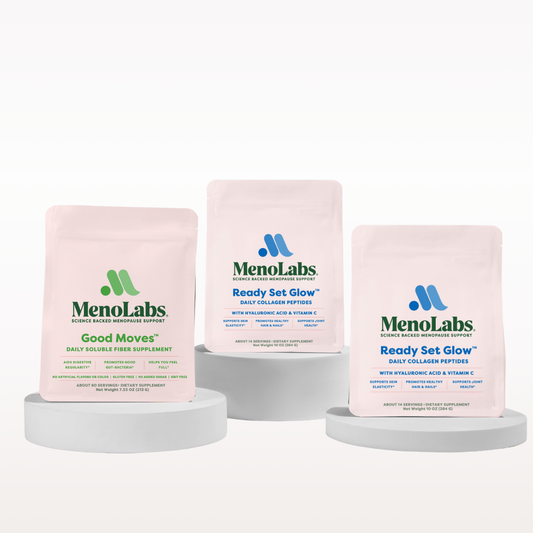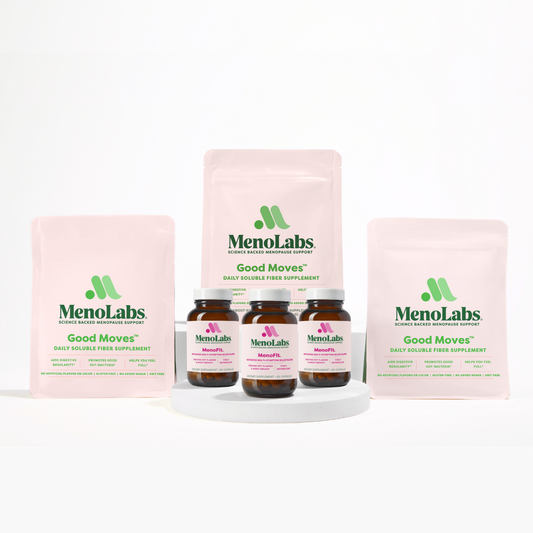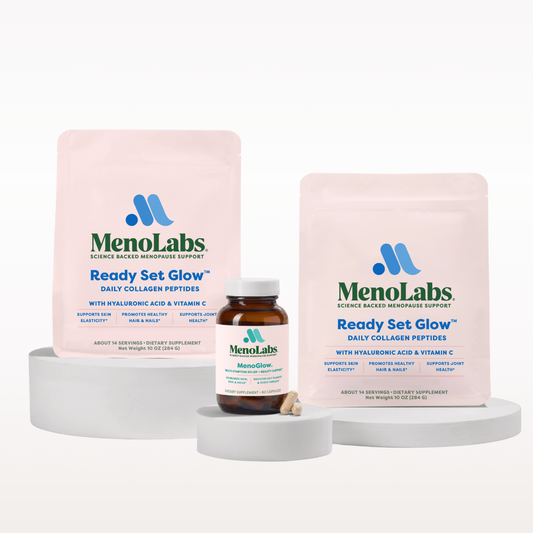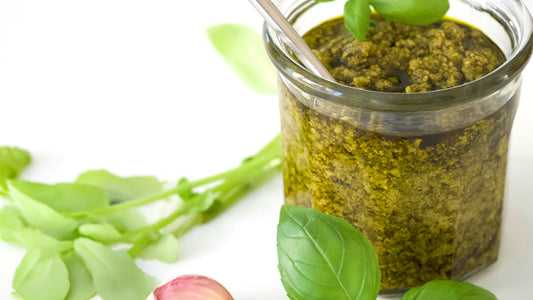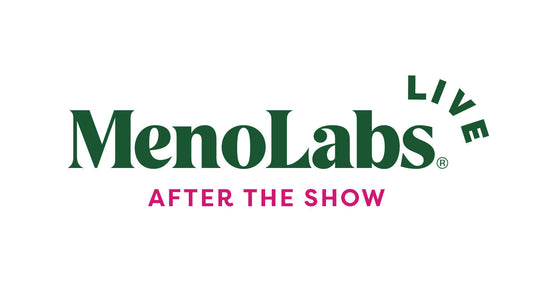Your diet plays a big part in how your body responds to internal and external changes, and this is especially true during peri/menopause — for example, a diet high in fiber and low in fat has been shown to help balance fluctuating estrogen levels, which can help to ease migraines, night sweats, and hot flashes.
A vegan or vegetarian diet is a great way to tweak your diet so that it features more high fiber foods and less unhealthy fats. But if you're used to eating meat, changing your diet can be a challenge. But for some peri/menopausal women, it's a switch that can be worth it.
The Benefits of a Plant-Based Diet for Peri/menopausal Women
Vegetarian diets tend to be lower in fat and higher in fiber than omnivore diets, which can benefit peri/menopausal women in several different ways.
1. Limiting Weight Gain
Studies have shown that women who follow a vegan or vegetarian diet find it easier to maintain their premenopausal body weight and even lose weight. This can help with health issues like stroke, heart disease, and type 2 diabetes, and reduce stress on joints.
2. Reducing Vasomotor Symptoms
In one study, researchers compared women who consumed a plant-based diet with women following an omnivore diet. Women following a vegan or vegetarian diet reported fewer vasomotor symptoms., including flushes, hot flashes, and night sweats.
3. Decrease in Risk of Cardiovascular Disease
People following a plant-based diet will consume fewer saturated fats, which suggests it might reduce inflammation. This translates to a reduced risk of cardiovascular disease.
Tips to Ease into a Vegan or Vegetarian Diet
If you have been eating meat, dairy and other animal products your whole life, it can be very difficult to make a complete switch to vegetarianism overnight, never mind full-blown veganism. If you want the changes you make to be sustainable, it is best to make small changes. Rome wasn’t built in a day! Here are six tips to help you gradually move over to a plant-based eating regime:
- Take it slow. Start off by not eating animal products just one day a week. For example, adopt a meat-free Mondays policy. See how it feels — if you like it, you can build on your habits from there.
- Alternatively, omit animal products from your diet one at a time. For example, for the first week, remove pork from your meal plan. The following week or month, no pork and cheese.
- A cute idea is to follow the saying: “Go from four legs to two legs to no legs.” In other words, first, reduce red meat intake, then chicken and other poultry, and then fish.
- If being entirely vegetarian is not for you, try to reduce your meat portion sizes instead. If you usually have seven ounces of animal-based protein at dinner time, try and reduce that to three and a half ounces. Substitute the shortfall with vegetables.
- Look for vegetarian recipes that excite you. Try one new recipe each week until you have built up a repertoire of tasty vegan recipes.
- There are possibly already dishes that you eat that are meat-free. Take note of these and cycle them through your weekly meal planner.
Make Sure to Get Enough Protein, Nutrients, and Fiber
Switching from an omnivore diet to a vegan or vegetarian diet may leave you vulnerable to certain vitamin deficiencies. Make sure to get enough calcium, vitamin D, and vitamin B12 in your diet.
Use these tips to ensure that your diet stays balanced and healthy as you reduce your animal protein intake:
- Eating protein is essential for optimal blood sugar control. Make sure to include plant-based proteins such as lentils, nuts, beans, and seeds in your meals.
- If you are going to omit dairy from your diet, ensure that you eat enough calcium-rich foods. For example, green leafy veg, calcium-fortified soya milk, tofu, tempeh, or calcium-fortified cereals.
- People following a plant-based diet must make sure to get enough vitamin B12. Nutritional yeast flakes are a good source of plant-based vitamin B12.
Vitamin D, along with calcium and magnesium, is essential for maintaining good bone health. This is especially important during perimenopause because declining estrogen levels can lead to decreased bone density and osteoporosis.
Related Products
Blend Besties Bundle
Fresh Start Bundle
4.7 / 5.0
(553) 553 total reviews







